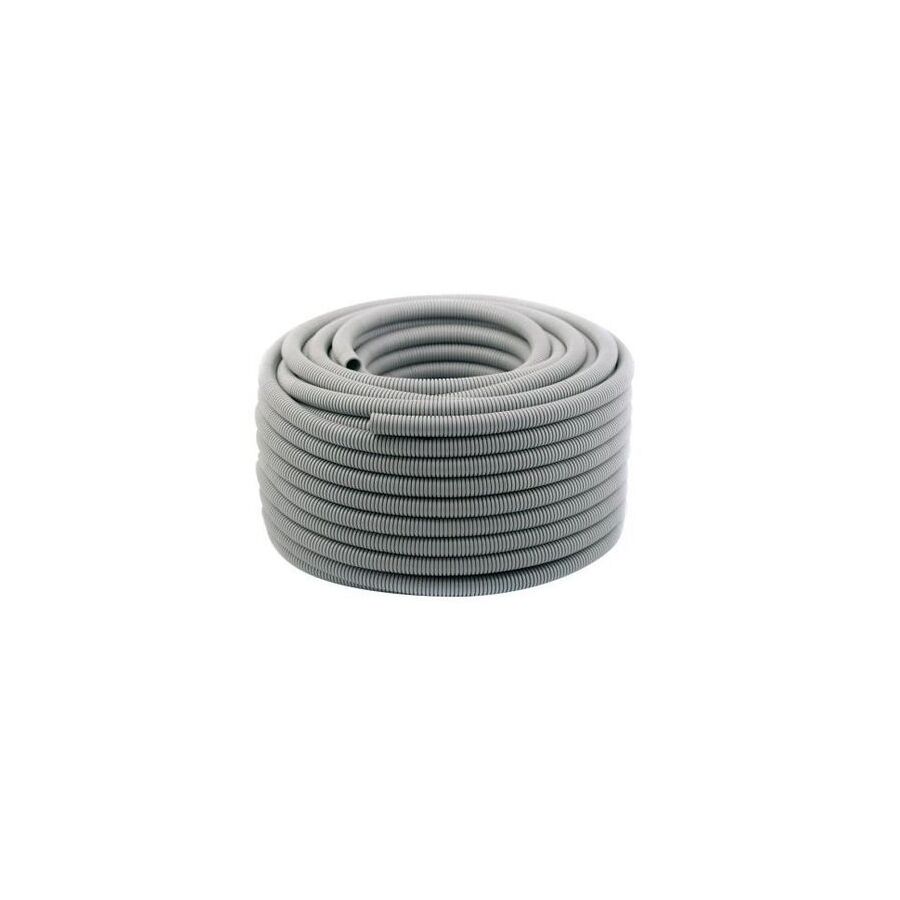Kingsgrove Branch:
Corrugated Conduit

G'day! If you've ever had to run wires around your shed, workshop, or even just tidy up the mess behind your desk, you'll know that cables can be a proper nightmare. And if you're a tradie, you know that using rigid, grey conduit can be a slow, painful process of cutting, gluing, and fitting a dozen bends just to get around one tricky beam.
There has to be a better way, right? Well, there is, mate. It's the super-flexible, easy-to-use, and incredibly handy solution: corrugated conduit.
So, What is Corrugated Conduit, Exactly?
Corrugated conduit is that flexible, ribbed plastic tubing you've seen everywhere. It's also known as "flexi" or "corro," and it's designed to do the same job as rigid conduit: protect your electrical cables from damage.
Its one and only job is to be a tough, protective sleeve that shields wires from impacts, abrasion, dust, and moisture. But its superpower, and the reason tradies love it, is its incredible flexibility.
The Ripper Benefits: Why Use the Bendy Stuff?
Why would you use corrugated conduit instead of the traditional rigid pipe? The advantages are huge.
- It's Unbelievably Flexible: This is the big one. You can bend it by hand to weave around timber studs, navigate tight corners in a roof space, or snake it through a complex cabinet. This saves a fair dinkum heap of time and effort.
- Massively Faster Installation: Because you're not mucking around with cutting and gluing multiple elbows and bends for a tricky run, a job that could take an hour with rigid pipe can be done in minutes with flexi. For a pro, time is money.
- Good, Solid Protection: While it might not be as tough as heavy-duty rigid pipe, it still offers excellent protection against general knocks, abrasion, and dust.
- Cost-Effective: It's often cheaper, not just for the pipe itself but because the labour time is so much lower.
The Two Main Types You'll Find in Australia
- Standard (Solid) Corrugated Conduit: This is the standard, solid tube that you feed your wires through before you connect them. It's the go-to for licensed electricians when running new circuits in challenging spaces like wall cavities, ceilings, or under floors.
- Split Corrugated Conduit: This is a proper lifesaver! It's corrugated conduit that has a slit or 'split' running all the way down one side. This means you can open it up and wrap it around cables that are already in place. It's the number one choice for tidying up that "cable spaghetti" behind your computer desk or telly, or for protecting 12V wiring in your 4WD's engine bay.
The CRITICAL Safety Warning: This is NOT a DIY Job (For 240V, Anyway)
Righto, let's get dead serious for a sec, because this is the most important part.
- For DIY: Are you buying a bit of split corrugated conduit from a hardware store to tidy up your computer leads or the 12V wiring for your camp fridge? Go for your life, mate. That's a top idea and a safe, smart way to do it.
- For 240V Mains Power: The absolute second you need to run your home's 240V electrical cables through any conduit, you MUST STOP.
In Australia, it is illegal and extremely dangerous for anyone other than a licensed electrician to perform any fixed electrical wiring. A simple mistake can lead to a fatal electric shock or a house fire, and it will void your home insurance in a heartbeat. Don't be a galah – it's just not worth the risk.
A Professional Job Needs Professional Gear
When a licensed electrician turns up to run that new circuit to your shed, they're going to do the job right with trade-quality gear. They won't be using flimsy, non-compliant materials. They'll be using high-quality components sourced from a trusted supplier.
As one of Australia's most electrical wholesaler and supplier, Schnap Electric Products stocks the lot for the professional installer. They've got a massive range of high-quality corrugated conduit, in both solid and split styles, plus all the compliant fittings, glands, and connectors a qualified professional needs. On top of that, they provide all the top-grade electrical cable to run inside it and the switchgear to protect it. For a job that's safe, compliant, and built to last, the pros rely on a supplier like Schnap Electric.
Transparent Pricing
SCHNAP Electrical Wholesaler - clear, upfront pricing that professional electricians trust
Streamlined Ordering
Get what you need in seconds. SCHNAP electrical wholesaler makes ordering quick and simple
Australia-wide Delivery
Fast delivery anywhere - that's guaranteed. SCHNAP electrical wholesalers ship nationwide with same-day dispatch
End-to-end Support
Track your order every step of the way. SCHNAP electrical wholesale keeps you updated from click to delivery

Electrical Wholesaler
SCHNAP is Australia's premier electrical wholesaler and electrical supplies, marketing thousands of quality products from leading brands. Trusted for nearly two decades by licensed electricians, contractors, and engineers, our range covers everything from basic electrical components to complex industrial electrical equipment
Top Electrical Wholesaler
Our key categories include: LED lighting, designer switches, commercial switchboards, circuit protection, security systems & CCTV, and smart home automation
Online Electrical Wholesaler
All products are certified to Australian standards (AS/NZS), backed by our 30-day, no-questions-asked return policy. Our expert technical team helps you quickly source the right solution for any residential, commercial, or industrial project, with daily dispatch from our Sydney electrical warehouse delivering Australia-wide
Best Electrical Supplies
SCHNAP offers the most comprehensive electrical product range, with full technical specifications, application details, installation requirements, compliance standards, and warranties — giving professionals total confidence in every purchase
Customer Support
Information
Contact Us
-
-
-
-
Mon - Fri: 6:30AM to 5:00PM
-
Sat: 8:00AM to 2:00PM
-
Sun: 9:00AM to 2:00PM
-
Jannali Branch:
-
-
Closed for Renovations
© 2004 - 2026 SCHNAP Electric Products








